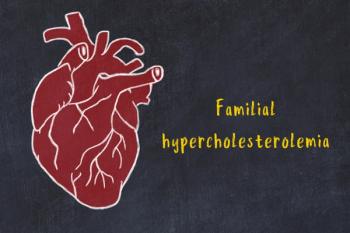
September 24 celebrates Familial Hypercholesterolemia Awareness Day, which recognizes the importance of screening measures, education, and advocacy in a lesser-known, underdiagnosed cardiovascular condition.

September 24 celebrates Familial Hypercholesterolemia Awareness Day, which recognizes the importance of screening measures, education, and advocacy in a lesser-known, underdiagnosed cardiovascular condition.

A recent analysis investigated the state of metabolic disruption experienced by patients with spinal muscular atrophy (SMA), adding to the literature on nutritional and metabolic complications linked to SMA.
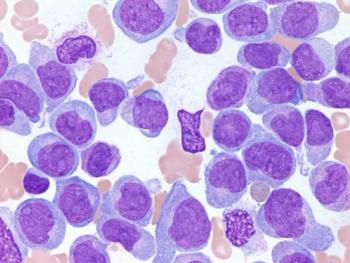
Coverage from the Institute for Value-Based Medicine session at Ohio State University. This article will appear in the October issue of Evidence-Based Oncology.

Chairs and presenters from the 2024 World Conference on Lung Cancer comment on their favorite parts about attending this meeting each year.

A systematic review on diagnostic challenges and burden related to idiopathic hypersomnia gave insights into the extensive difficulties associated with the condition.

Results from a new study link inpatient food insecurity with longer hospitalization and greater chances of readmission.
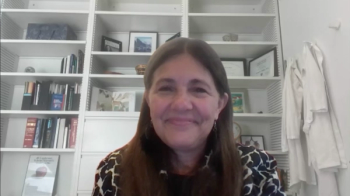
Heather Wakelee, MD, Stanford University, discusses the pros and cons of different durations of immunotherapy in non-small cell lung cancer (NSCLC) and the future outlook for patient-specific care.

Matthew Smeltzer, PhD, University of Memphis, shares insights into his team's quality-of-care initiative to identify and combat gaps in care for patients with early-stage non–small cell lung cancer (NSCLC).

Bellinda King-Kallimanis, PhD, LUNGevity Foundation, reflects on her experiences in patient-focused research to discuss the current state of patient education, the importance of patient advocates, and mediating barriers to health care access.
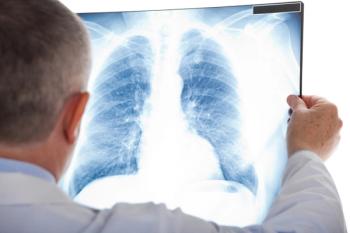
John Heymach, MD, PhD, The University of Texas MD Anderson Cancer Center, discusses exciting developments in HER2-targeted therapies that he foresees making a difference in the treatment of non–small cell lung cancer (NSCLC).

This third and final installment on forever chemicals highlights the present-day initiatives and developments aimed at eliminating forever chemicals, their pervasiveness, and improving public health.

Ana Baramidze, MD, PhD, Todua Clinic, Tbilisi, Georgia, details exciting findings from the EMPOWER-Lung 1 trial regarding cemiplimab and patients with non–small cell lung cancer (NSCLC).

Siow Ming Lee, PhD, FRCP, University College London Hospitals, discusses essential advancements necessary for improving immunotherapy outcomes in special patient subgroups with lung cancer.

The 2024 World Conference on Lung Cancer (WCLC) marks the 50th anniversary of the International Association for the Study of Lung Cancer. Sandip Patel, MD, joined for an interview looking forward to the unique features of this year's meeting.

An analysis on the state of pharmaceutical drug pricing revealed that, despite rebates, consumers' out-of-pocket costs have grown faster than their insurers' prices.

A comparative analysis investigating time from a drug's approval to insurance reimbursement found that the speed of this process in the US falls behind some European countries.

Mark Bleackley, PhD, Incannex, discusses the notable and surprising observations from the ongoing RePOSA study, and the developmental challenges they have encountered with their cannabinoid pharmacotherapy for patients with obstructive sleep apnea.

Findings from a post hoc analysis of 3 clinical trials support the switching to or initiation of pegcetacoplan to manage fatigue for patients with paroxysmal nocturnal hemoglobinuria (PNH) that is accompanied by mild to moderate anemia.

Findings from an Italian cohort suggest that nusinersen may benefit fatigue measures in patients with spinal muscular atrophy (SMA) type III; however, drawing definitive conclusions in this area remains difficult.

This second installment on the threat of forever chemicals examines the impactful policies brought about during the Biden-Harris administration that are set to play a role in the future manufacturing, use, and monitoring of these harmful substances.

The World Health Organization has declared the second mpox global emergency in 2 years. Here are 5 things to know about mpox and the current outbreak.
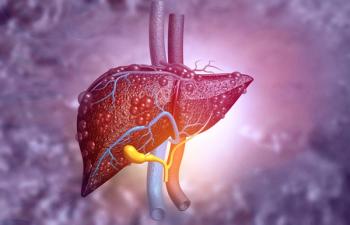
A retrospective, single-center cohort study utilized liver ultrasound, serum collection, and proteome analysis to draw associations between spinal motor neuron (SMN) protein depletion and heightened risk for fatty liver disease in spinal muscular atrophy (SMA).

The majority of federal savings indicated by the Inflation Reduction Act's Drug Price Negotiation Program can be attributed to 3 drugs.

Changes in formulary coverage for 2024 are impacting Medicare patients' access to and ability to afford various prescription medications.

Maria Amaya, MD, PhD, University of Colorado School of Medicine, explores discrepancies between real-world data and clinical trial outcomes, as well as her experience ensuring the reliability of real-world analysis.
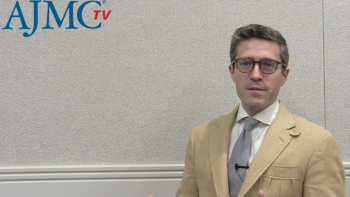
Andrew Hantel, MD, Dana-Farber Cancer Institute, discusses factors contributing to disparities in oncology clinical trial enrollment.

Caitlin Kindberg, a patient advocate from Nashville, Tennessee, discusses her experience finding proper treatment for idiopathic hypersomnia and the challenges associated with living with this condition.

The persistence of per- and polyfluoroalkyl substances (PFAS), otherwise known as "forever chemicals," poses a great threat to the environment and public health, as demonstrated by continually emerging research.

Christopher Depner, PhD, assistant professor of health and kinesiology, University of Utah, speaks to the current reliability of wearable sleep devices to impact health outcomes, privacy concerns, and more.

New survey data reveals that more than 25% of those aged 50 years and older assume caregiver responsibilities.

259 Prospect Plains Rd, Bldg H
Cranbury, NJ 08512
© 2025 MJH Life Sciences®
All rights reserved.
